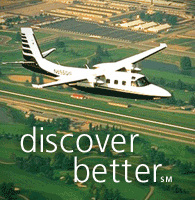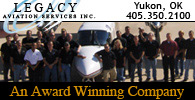BURIED IN DETAIL—AND LOVING IT


Bill Ball is the first to admit it: He likes paperwork. He likes to collect, organize, track, research, update, and control paperwork. It's his job�taking care of paperwork�and he says he �absolutely loves it.� Good thing for Twin Commander owners, too, because Ball is the guy who is in charge of taking care of the paperwork on every Twin Commander ever built.
Ball is the engineering librarian for Twin Commander Aircraft LLC in Creedmoor, North Carolina. His office is a 1,000-square-foot vault where all the paperwork�all manufacturer and FAA records�from the 3207 piston and turboprop Commanders built over the years (about 1800 of which are still active) is safely kept. The vault is protected against fires, floods, and other disasters, and access to it is granted to a select few people. Ball is on that short list.
�I was hired to take care of this vault, with 50 years of documentation from the first generation Commander to the present,� he explains. �My job is to keep the documents controlled, changes up to date, make sure they are correct, release changes, and disseminate to anyone who needs them.�
Managing those records is difficult enough on U.S.-registered aircraft, but Ball also has to account for foreign-registered Commanders. He says he gets the job done using web sites for foreign aviation authorities, and also with the help of Twin Commander historian Barry Collman, a British citizen who is compiling an exhaustive book on Twin Commander's company and manufacturing history.
Ball says he takes care of requests from service centers, pilots, and owners; collects compliance records from service centers, warranty files, airworthiness records, marketing information, and photos of various aircraft; manages inventory for flight manuals, pilot operating handbooks, maintenance manuals, and illustrated parts catalogs; serves as liaison with the FAA on aircraft documentation; and basically �takes care of any customer needs� regarding documentation.
�Basically it's an administrative job with a lot of detail and paperwork on each aircraft,� he explains. �I take care of anything that is needed in terms of recordkeeping. For me it's fun. My last job was very stressful. Now when I'm asked how I deal with it all here, I say it's a pleasure to do.�
Without sounding the least bit boastful, Ball says he is �good at research.� Whenever information is needed in connection with a maintenance or modification issue or an accident investigation, Ball is charged with digging it up. �I can find anything they need,� he says. He recalls receiving a request from an engineering firm for all specifications on fuselage station 178 on 690-series Twin Commanders. �They thought it would take a couple of months to find the information. I went back into the vault, and found it all in three weeks.�
In Ball's case, familiarity with the information and where it can be found breeds speed and efficiency. �After a year and a half on the job, I pretty much know where everything is in the vault,� he says.
Ball came to Twin Commander after a 40-year career in documentation and designing mechanical and electrical components, including printed circuit boards. He has been involved in aerospace�he took care of computerized recording systems on the Challenger spacecraft for a NASA contractor, but Twin Commander is his first stint in general aviation.
He's not new to the field, however. There's an A&P in the family, his brother is a pilot, and years ago Ball took a few flying lessons until an eye injury cut the training short. A cancer survivor, Ball says he's glad to finally be back in general aviation. �This is the best job I've ever had,� he says. �I will work at it and stay here as long as they want me.�
Discuss this article in the forums...







